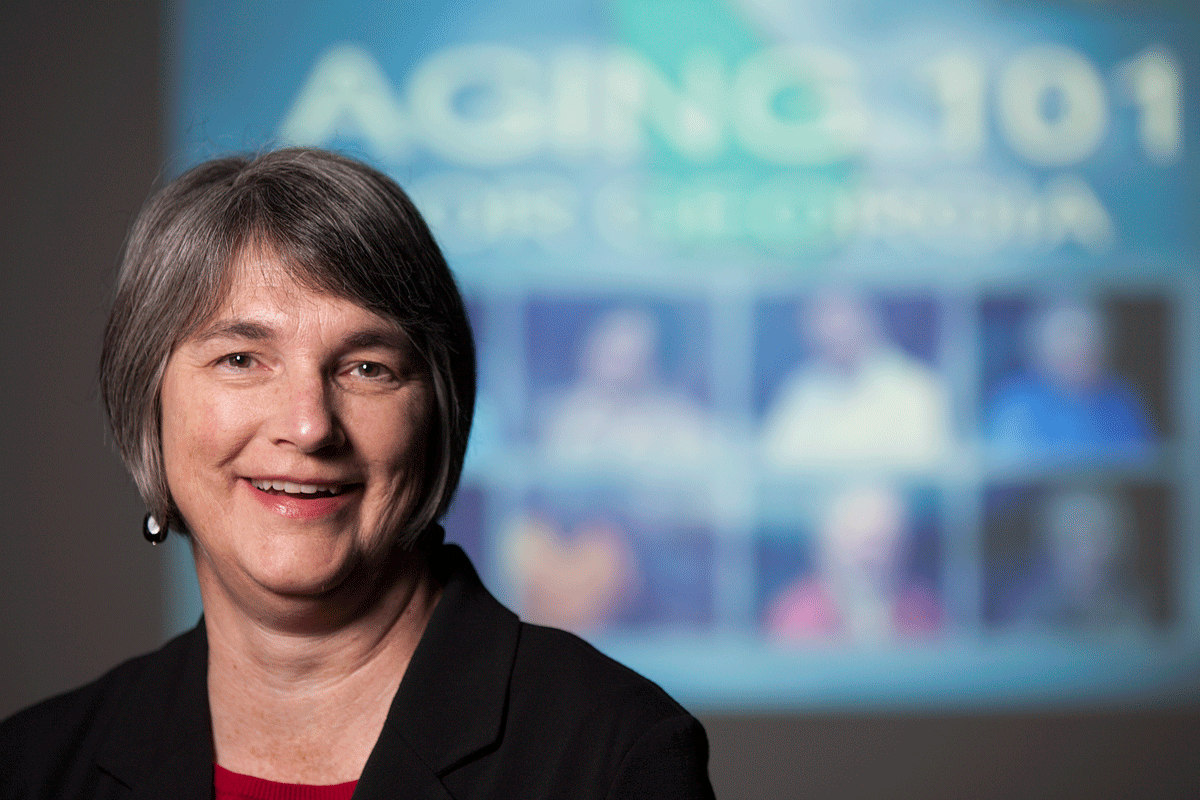| We’re older than you think.
Right now there are about 70,000 people older than 100 living in the U.S. By 2050 it could be as many as 1 million.
The population is graying, and as baby boomers begin to slide toward retirement, they’re going to experience changes in their physical abilities, wants and requirements.
Their aging doesn’t just affect them, however. More of their offspring will be thrust into caretaker roles, and businesses hoping to cater to the market will have new challenges and opportunities to attract and keep older customers, who may have different preferences than they do now.
And that’s where UGA’s Anne Glass comes in.
“It won’t just be the parents who need to know about aging,” said Glass, assistant director and graduate coordinator at the College of Public Health’s Institute of Gerontology. “It’s their children, too. We’re all getting older, and it’s important to know what happens to us as we age.”
Working with the UGA Center for Teaching and Learning, Glass and others at the institute created “Aging 101 for Georgia,” a video presentation that explains the most vital information to help educate Georgians about aging.
“Over the last century, we’ve added 30 years to our lifespan, and we need to help people make the most of these years,” Glass said. “And it’s important to keep in mind that all older people are not the same. They’re one of the most diverse groups we have.”
The video, which runs about 90 minutes and received funding from the Healthcare Georgia Foundation, covers such topics as health, lifelong learning, staying connected, fighting ageism, planning ahead and adjusting to change.
The video, which is available free online at http://training.geron.uga.edu/aging101, highlights the physical and mental changes that occur as people age. It includes interviews with renowned researchers and scholars and older adults.
“We wanted to do something that people could access anywhere, to reach the greatest number of people who need this information,” Glass said. A list of free resources also is accessible on the Web site, for those who would like additional information.
The video is available for free both online and as a DVD. The Institute for Gerontology has already sent out many copies to area agencies on aging, senior centers and retirement communities throughout the state, but individuals also can request a copy online while supplies last.
The presentation includes information about nutritional health, exercise and other health precautions (such as sunscreen use and advice on medication) for older adults.
It also includes information for caretakers—whether they are children, healthcare workers or just people who live close to or interact regularly with older adults.
“I talk about recognizing the signs you can look for when someone has a stroke, so that people can get the help they need quickly, because time is of the essence in those cases,” Glass said. |


